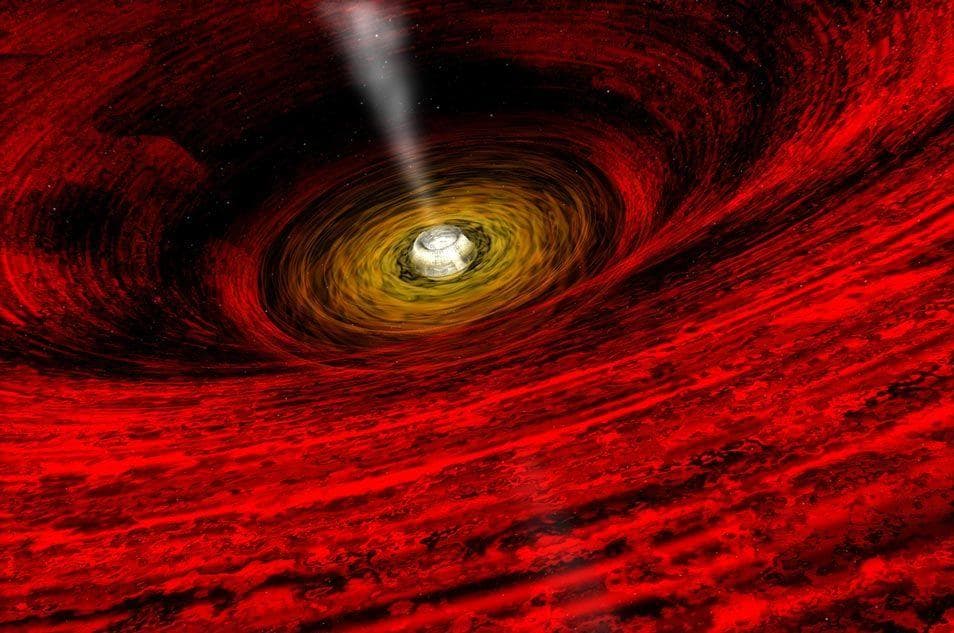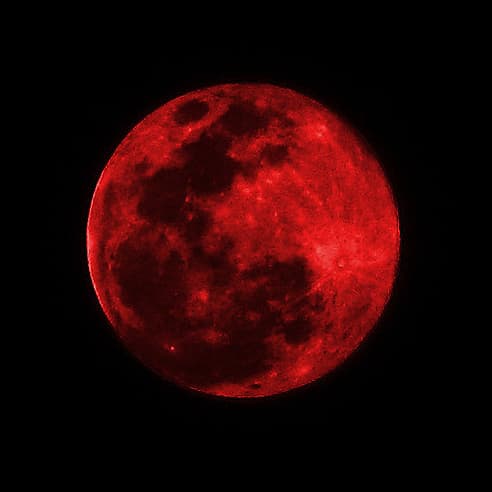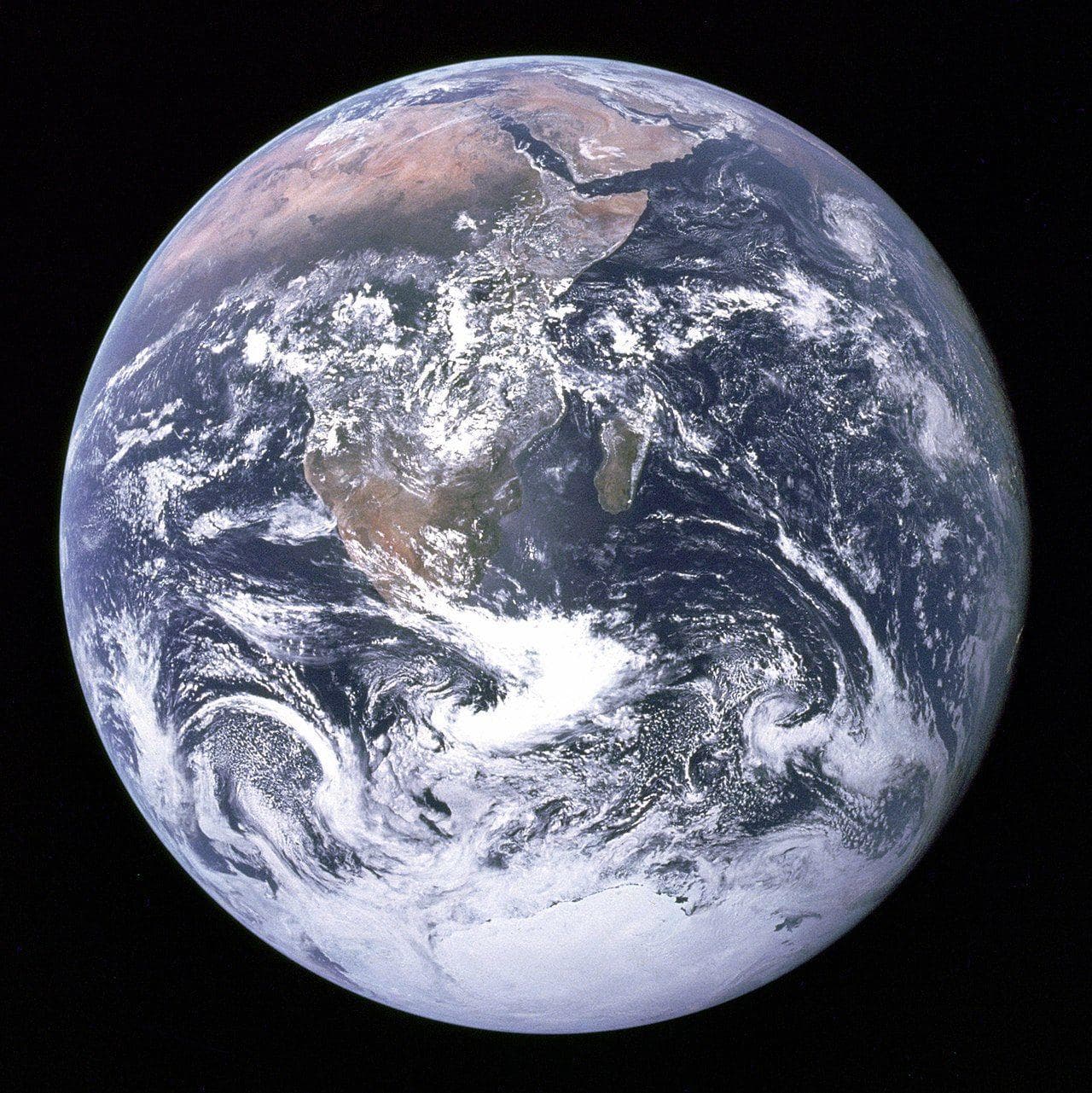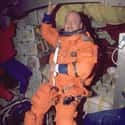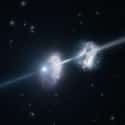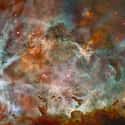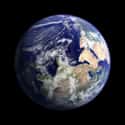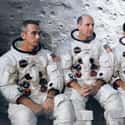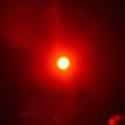-
(#1) Chunks Of The Milky Way Galaxy Are Being Sucked Away
Something unidentified, larger than anything in the known universe, is sucking portions of the Milky Way galaxy, AKA your home, away. In 2009, researchers found a cluster of galaxies moving at an extraordinary speed towards a small patch of sky between the constellations of Centaurus and Vela.
Scientists have dubbed this phenomenon "dark flow" in reference to other cosmic mysteries, dark matter, and dark energy.
-
(#2) A Giant Black Hole Hurls Through Space At Five Million Miles Per Hour
The Hubble Space Telescope located a black hole in 2017 that is being manipulated by gravitational waves. The black hole - capable of devouring anything in its path - will eventually break free of its own galaxy and begin to roam the universe.
Although the anomaly weighs as much as 1 billion suns and has reached speeds of roughly 5 million miles per hour, it is estimated to still be 8 billion light years from Earth.
-
(#3) The Night Sky Will Someday Be Completely Black
As the Milky Way Galaxy continues to merge with its neighboring galaxies, the view of the night sky from Earth will change dramatically. The speedy expansion will eventually pull the galaxies apart faster than light, eliminating the distinctive products of the big bang and nullifying points of reference for expansion measurement.
-
(#4) Astronauts Must Drink 730 Liters Of Recycled Sweat And Urine To Live In Space For A Year
Water is a limited resource in space - because of this, astronauts must resort to recycling their own waste. NASA astronaut Scott Kelly consumed approximately 730 liters of recycled urine and sweat during his yearlong mission.
-
(#5) Meteors Can Strike Earth With No Warning
In 2013, a meteorite exploded over the Russian region of Chelyabinsk. About 400 people were injured, with most injuries caused by broken glass resulting from the explosion. Conflicting reports hypothesized that the missile was either part of a meteor shower or a single meteorite.
-
(#6) Solar Superstorms Could Cause Blackouts Worldwide
In July of 2012, a coronal mass ejection (CME), referred to as a solar superstorm by the media, tore through Earth's orbit and collided with the STEREO-A spacecraft. According to Daniel Baker of the University of Colorado, had the superstorm occurred one week earlier, Earth would have received the impact and devastating after-effects.
-
(#7) Extended Space Travel Can Change Your DNA
Astronaut Scott Kelly, who spent a year at the International Space Station in 2016, returned to find that he was two inches taller than his departing height. The new physical differences between Kelly and his identical twin brother, Mike - also an astronaut - were startling. Scientists compared the DNA of the two and found that, besides, growing two inches, Kelly's gut bacteria were completely different and his gene expression had changed.
Scientists concluded that the changes were caused by "the stresses of space travel, which can cause changes in a cell’s biological pathways." Although Kelly eventually returned to his original height, his other genetic changes are seemingly irreversible, meaning Kelly and his brother are no longer identical twins.
-
(#8) Gamma-Ray Bursts Can Destroy Planets
Gamma-ray bursts, giant explosions in distant galaxies that send out waves of gamma rays, are capable of destroying entire planets if their properties are pointed directly at the planet in question. Despite such a grandiose scenario, Earth is relatively safe.
Estimates from 2018 project that, while a gamma-ray burst will occur in the Milky Way galaxy about once every five million years, the radiation will most likely be distant enough that life on Earth will not be affected.
-
(#9) After A Month In Orbit, Callouses Slough Off
Scott Kelly, the same astronaut who returned from the International Space Station with numerous genetic changes, revealed in a Reddit AMA that, in space, foot callouses will eventually slough off:
The bottoms of your feet become very soft like newborn baby feet. But the top of my feet develop rough alligator skin because I use the top of my feet to get around here on space station when using foot rails.
-
(#10) The Universe Could Literally Explode In A Few Billion Years
According to the "Big Rip" theory, in a few billion years, a mysterious, permeating force known as "dark energy" will become so powerful that it could pull every ounce of Earth's matter apart on an atomic level.
Dr. Robert Caldwell, a Dartmouth physicist, described the apocalyptic scenario in a paper written in tandem with professors from the California Institute of Technology.
-
(#11) Space Can Make You Nearsighted
As evidenced by astronaut Scott Kelly's year-long stint on the ISS, space travel wreaks bewildering effects on the body. One such effect is the deformation of an astronaut's eyeballs during extended periods in orbit, which could lead to long-term complications.
Fluid surrounding the brain can increase to the point that the eyes begin to swell and sight drastically deteriorates.
-
(#12) A Majority Of 'Earth 2' Is Uninhabitable
Gliese 581g, an exoplanet 20 light-years from Earth, is considered the prime candidate for human re-colonization should Earth's resources be expended. Locked in orbit around a red dwarf star known as Gliese, one side of the planet reaches temperatures as cold as the North Pole while the other is plagued by excessive heat.
While one strip of the planet suggests the possibility of future habitation, the sky would glow a perpetual red and any plants would grow in an unappetizing black due to the weakness of the red dwarf in comparison to our own sun.
-
(#13) There Are Sounds In Space
Though popular thought contends that outer space is a vacuum, in actuality -- interstellar dust is so dense in some areas that it can carry sound waves. Though these waves would be imperceptive to humans.
Some sounds in space may include the humming of a massive black hole, the groans of Earth as its crust shifts, and the residual sound of the universe expanding.
-
(#14) Space Carries A Distinctive Scent
Astronauts returning from space are generally accompanied by a peculiar, distinctive scent. Those exposed to the odor describe it as "sulfurous" and liken it to the smells of gunpowder, seared steak, hot metal, and welding fumes.
-
(#15) Feces Float
The crew members of Apollo 10 discovered that the makeup of feces combined with the diet of astronauts rendered it bouncy and pong-like. At one point during the mission, feces was loosed from its container due to its sponginess, causing a stir among the astronauts.
-
(#16) The Universe Cools As It Expands
By studying molecules in a gas cloud located in a distant galaxy, astronomers in 2013 precisely calculated the rate at which the universe is cooling. Through the use of the CSIRO Australia Telescope Compact Array, an international team of researchers was able to extrapolate a "fingerprint" of the universe's cooling habits.
They determined that when the universe was half of its current age, it maintained a temperature of –267.92. This is 2.35 degrees warmer than today's temperature of –270.27.
-
(#17) Free-Floating Planets May Outnumber The Stars
In 2011, astronomers discovered numerous Jupiter-sized planets free-floating apart from any star. The team hypothesized that the rogue planets were ejected from distant developing planetary systems, and estimated that there may be twice as many of these free-floating worlds as there are stars.
Potentially even more numerous are free-floating planets smaller than Jupiter and Saturn, as their reduced mass allows them to be more easily ejected from their systems.
-
(#18) Water Can Start Fires In Space
In 2014, scientists experimented "supercritical" water, a state of water that occurs when it is compressed to a pressure of 217 atmospheres and heated above 373 degrees Celsius. When mixed with organic material, it creates a liquid-like gas that creates a burning effect, though with no flame.
Astronauts often use supercritical water as a means to dispose of waste.
-
(#19) The Earth Technically Resides Within The Sun
Although the sun is typically understood to be 93 million miles away from Earth, its atmosphere extends far beyond not only this planet, but beyond Jupiter, Saturn, Uranus, and even Neptune. As Earth resides within this heliosphere - the bubble-like region of space dominated by the sun.
Humans are inhabitants not just of Earth, but of the sun as well.
-
(#20) The Existence Of Extraterrestrials Is Inscrutable And Unlikely
The Fermi Paradox describes the discrepancy between humanity's expectations of finding or being contacted by alien life and the apparent lack of sufficient evidence to suggest these beings' existence. According to a 2018 paper written by Anders Sandberg, Eric Drexler, and Toby Ord of the Future of Humanity Institute, Earthlings are not only likely to be the sole intelligence in the Milky Way, but there is an approximately 50 percent chance that humanity is alone in the observable universe.
While the researchers' conclusion reads as pessimistic, the paper's authors make no definitive claims as to the existence of extraterrestrials.
-
(#21) Galaxies Can Eat Each Other
Galactic Cannibalism is a process in which a large galaxy merges with a companion galaxy through tidal gravitational interactions. This process generally results in an irregular galaxy, as evidenced by the examples of the Whirlpool Galaxy, the Mice Galaxies, and the Antennae Galaxies.
Galactic Cannibalism is not to be confused with Galactic Collision, in which galaxies collide but maintain their original shapes.
-
(#22) Time On Earth Moves Faster Than Time In Space
Due to time dilation - a precept of the theory of relativity referencing a difference in the elapsed time measured by two observers – astronauts stationed in outer space lose approximately one second per week. the spin of Earth, its orbit around the sun and the solar system’s motion around the Milky Way all combine to decrease the time we experience on Earth.
Though miniscule, this second-per-week dilation results in nearly a minute lost annually and more than 8.5 minutes lost each decade.
-
(#23) Tears Don't Fall In Space
While astronauts can physically cry in space, zero gravity prevents tears from flowing down the face––instead, they ball up and "conglomerate around the eyeball."
-
(#24) Limbs Float During Sleep In Zero Gravity
Limbs flail about during sleep in space due to lack of gravitational constraints. Astronaut Marsha Ivins recounted the surreal experience of sleeping in orbit, as well as many other unexpected phenomena that occur when living in space.
-
(#25) Earth Inhabitants Are Traveling At Incredible Speeds
Due to the rotation of the Earth, all of its inhabitants are traveling at a speed of approximately 67,000 miles per hour. In an even more impressive feat, the Earth's orbit around the sun adds another 490,000 miles per hour to Earthlings' overall speed.
New Random Displays Display All By Ranking
About This Tool
Our data comes from Ranker, If you want to participate in the ranking of items displayed on this page, please click here.


